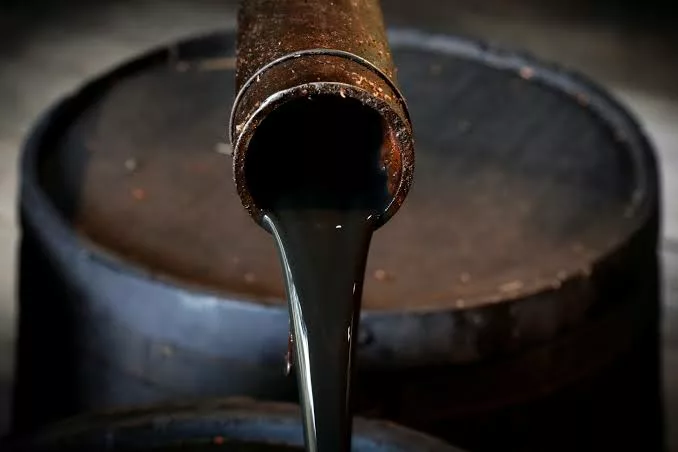Oil theft in Nigeria has decreased to 5,000 barrels per day (b/d), according to the Nigerian Upstream Petroleum Regulatory Commission (NUPRC).
This decrease in crude oil theft has resulted in an increase in national oil output, which has reached 1.75 million barrels per day (mbpd) in January 2025.
The commission’s chief executive, Gbenga Komolafe, disclosed this at the Renewed Hope Global Town Hall Conference in Abuja. He projected that oil production will increase by one million bpd by the end of 2026.
The NUPRC aims to further ramp up production to 2.6 mb/d by December 2026 as part of its strategic initiatives to enhance the country’s oil sector.
The recent decline in oil theft is attributed to intensified efforts by the Nigerian military and security agencies against pipeline vandalism and illegal oil bunkering operations in the Niger Delta region. In recent months, authorities have reported significant seizures of stolen oil and the dismantling of illegal refineries, indicating progress in combating this long-standing issue that has plagued Nigeria’s economy.
Despite these improvements, the country has faced substantial economic losses due to oil theft, with estimates suggesting that Nigeria lost around N2.3 trillion (approximately $3 billion) in 2023 alone due to such criminal activities.
The NUPRC’s current output levels are a positive sign for the industry, which has struggled with production challenges over the past few years27.
Looking ahead, the NUPRC’s target of 2.6 mb/d by late 2026 reflects a commitment to restoring Nigeria’s position as a key player in the global oil market, bolstered by ongoing security measures and regulatory reforms aimed at ensuring sustainable production levels.
Komolafe highlighted the progress made in curbing oil theft, which had previously caused a significant drop in production to 1.1 million bpd in 2022.
“Through kinetic and non-kinetic interventions, oil theft has significantly reduced to 5,000 bpd, leading to a steady production increase to 1.7 million bpd,” he stated.
He further outlined the government’s goal to boost production under the Project 1 MMBOPD initiative, which will rely on collaboration among operators, service providers, financiers, and host communities.
Komolafe also reported that gas production has increased to 7 billion standard cubic feet per day (SCFD), reflecting a positive shift in the upstream sector.
He emphasised that since the enactment of the Petroleum Industry Act (PIA) in 2021, the Commission has initiated several reforms to enhance regulatory effectiveness and attract investments.
“In May 2023, the Commission unveiled its 10-year Regulatory and Corporate Strategic Plan (2023–2033), followed by a Regulatory Action Plan for 2024, detailing key industry reforms,” he noted.
These reforms aim to: Increase oil and gas reserves and production, Enhance hydrocarbon accounting transparency, Achieve cost efficiency and decarbonisation, Ensure host community stability and Reduce the carbon footprint of upstream operations.
Komolafe highlighted the Nigeria Gas Flare Commercialisation Programme (NGFCP) as a core component of the country’s energy transition strategy.
The initiative targets: Eliminating routine gas flaring, Reducing methane emissions and Encouraging carbon capture technologies.
Additionally, the Carbon Credits Earning Framework aims to monetise decarbonisation efforts while promoting sustainable energy practices.
Komolafe reported that the NUPRC has consistently exceeded revenue targets, achieving an 84 per cent increase above its budgeted revenue in 2024.
To strengthen fiscal transparency, the Commission has implemented regulations on: Hydrocarbon metering, Fiscal oil price determination, Cargo declaration systems, These measures aim to curb revenue leakages and crude oil theft.
Addressing community relations, Komolafe disclosed that 137 Host Community Development Trusts (HCDTs) have been established to foster local participation and stability in oil-producing areas.
He reiterated the NUPRC’s commitment to driving sustainable growth and ensuring transparency in Nigeria’s upstream oil and gas sector.
Speaking on Nigeria’s oil and gas potential and global positioning, he noted that Africa accounts for five of the world’s top oil-producing countries, and Nigeria stands as the continent’s second-largest oil reserve holder and the largest gas reserve holder, with oil reserves estimated at 37.5 billion barrels, while gas reserves stand at 209 trillion cubic feet (TCF).
He added that oil production in Nigeria now averages 1.75 million barrels per day (BOPD), with a gas production rate of 7 billion standard cubic feet per day (SCFD).
On regulatory reforms and achievements, the NUPRC boss stated that since the enactment of the Petroleum Industry Act (PIA) in 2021, the Commission has driven several initiatives to enhance regulatory effectiveness and attract investments.
These reforms, according to him, focus on increasing oil and gas reserves and production, enhancing hydrocarbon accounting transparency, achieving cost efficiency and decarbonisation in upstream operations, ensuring stability in host communities, and reducing the carbon footprint of oil and gas activities.
On the 2024 Licensing Round and Investment Drive, Engr. Komolafe highlighted that NUPRC launched its 2024 Licensing Round, offering 24 oil and gas assets to investors. To attract global participation, the commission held roadshows in Houston, Miami, London, and Paris, showcasing Nigeria’s energy potential.
Shedding light on the Nigeria Gas Flare Commercialisation Programme (NGFCP), the CCE assured that the project is at the forefront of the country’s energy transition strategy and aims to eliminate routine gas flaring, reduce methane emissions, and encourage carbon capture technologies. Additionally, the Carbon Credits Earning Framework seeks to monetise decarbonisation efforts while promoting sustainable energy practices.
Giving a brief on revenue growth and financial performance, coupled with industry challenges, he mentioned that NUPRC has consistently exceeded revenue targets. In 2024, the commission outperformed its budgeted revenue collection by 84 per cent, marking a strong financial performance for Nigeria’s upstream sector.
To ensure fiscal transparency, NUPRC has implemented regulations on hydrocarbon metering, fiscal oil price determination, and cargo declaration systems to curb revenue leakages and crude oil theft.
On Host Community Engagement and Regulatory Transparency, the Commission has incorporated 137 Host Community Development Trusts (HCDTs) to foster local participation and stability in oil-producing regions. Furthermore, the Alternative Dispute Resolution Centre (ADRC) has been established to resolve conflicts efficiently, reducing disruptions to oil and gas operations.
In light of all these developments, Komolafe emphasised that Nigeria is more ready for business than ever, citing the government’s commitment to regulatory certainty, investment-friendly policies, and global competitiveness.
With a stable political environment, a growing gas economy, and a clear roadmap for energy transition, Nigeria positions itself as a prime destination for energy investments in Africa.
He reaffirmed NUPRC’s commitment to collaborating with global investors, financiers, and energy stakeholders to unlock the nation’s full hydrocarbon potential while driving sustainable development.





